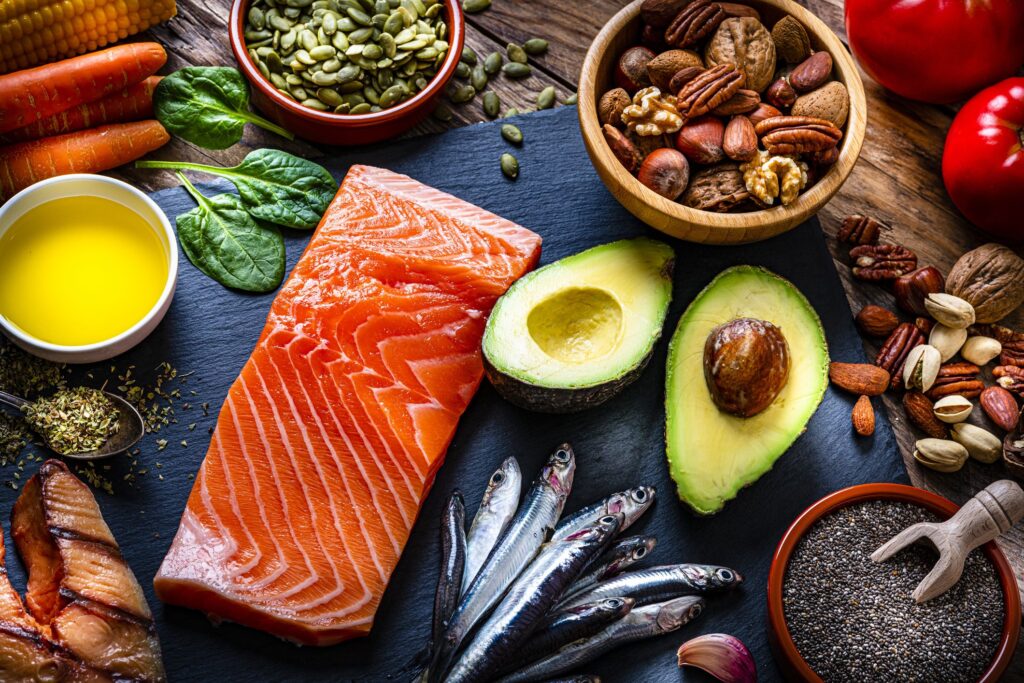Food: The new mental health MEDicine

Food is a hot topic at the moment. While the public post their Saturday night meals on Insta, scientists are exploring exciting new avenues of health research through amazing findings in the gut lining. Registered dietician Paula Mee fears that increased interest in food could lead to increased misinformation so this post aims to break down Paula Mee’s advice on the MEDiterranean diet.

A quick revision on our earlier post of why food matters: What we eat both indirectly and directly influences our mental health. Based on Maslow’s hierarchy of needs, we need the foundation of meeting our physiological needs like thirst and hunger before we can focus on our psychological needs. That’s why psychologists will firstly focus on daily routine before thought patterns. If you’re not eating well or eating at all, you don’t have energy and this then interacts with sleep and exercise, which then leads to mental health plummeting. This is the indirect effect.
Regarding the direct effect, neuroscientist Diego Bohorquez at Duke University discovered that there were neurotransmitters (brain chemicals) in our gut that were similar to the neurotransmitters in our brain such as serotonin and dopamine, and there was a direct pathway between the two via the vagus nerves.
Even if the vagus nerve was cut off, the stomach could still operate independently. With this amazing finding, the enteric nervous system was born. We have a second brain in our gut! And more importantly, how we eat directly impacts how we feel. Therefore, when we eat unhealthy foods like processed fats and sugar, our mental health declines over time and when we eat healthy diets such as the Mediterranean and Asian diets, we feel better and we are more likely to engage in other healthy lifestyle practices such as meditation and exercise.
Therefore, we need the bacteria in our gut (microbiota) to be diverse by eating lots of different food so it can fight against diseases. That means sticking with celery everyday won’t cut it. You might lose weight but you’ll be miserable. And so we need a diet that can meet all of these requirements. Introducing the MEDiterranean Diet.
The Mediterranean Diet (MD)

Thousands of studies have been done on people from Greece, Italy and Spain and they continuously demonstrated positive mental health, higher levels of aging and extremely low risk of heart attacks. For years, they didn’t know why but it is now becoming clear that it’s their diet. And I want to emphasise that when I say diet, I don’t mean you have to give up any food. Diet refers to the range of food we eat, because removing one nutrient or food type doesn’t work. A study by Christopher Garner at Yale found that over thousands of people, there was no difference in weight loss between a group who went on a low fat diet and a group who went on a low carb diet. Why? Because weight loss diets don’t work. The weight that participants lost was put back on shortly after. So when I say diet, it is the range of foods you eat. And the great thing is you probably already eat a lot of the MD.

In her book, Mediterranean Mood Food (which we highly recommend), she speaks about the 10 pillars of the Mediterranean diet:
1) Lots of fruit and vegetables (because of all those vitamins and minerals)
2) Lots of seeds, nuts and legumes (because of protein and amino acids)
3) Lots of fish because it contains omega 3, which is great brain food.
4) Lots of healthy fats such as avocado and nuts.
5) Natural yoghurt (the one that doesn’t really taste like anything) (as it contains probiotics that are essential for our gut health).
6) Whole grains (energy and helps with digestion).
7) Olive oil (because of omega 9 and antioxidants)
8) More herbs and spices (because of the vitamins and an anti-inflammatory known as fucoidan).
9) Less processed meat (It still does contain omega 3 but when processed, there is less).
10) Lots of eggs (because it contains choline, which is broken down to acetylcholine, and B vitamins).
The Evidence
A meta-analysis, which is the best kind of research study, looked at 21 studies from 10 different countries and found strong links between plant and fish based diet and a reduced rate of depression. Furthermore, a study from the British Journal of Nutrition discovered that consumption of omega 3 found in fish resulted in a 50% reduction in anxiety symptoms. Other research has found positive links between the MD and lower weight, better bone health, lower rates of cancer and even psoriasis and other skin conditions. Regarding nutrients, the MD contains essential fatty acids, minerals and vitamins that helps fluctuate blood glucose levels and release neurotransmitters such as dopamine, acetylcholine and norepinephrine. Failure to intake these nutrients can lead to inflammation in the body, which then leads to inflammation in the brain.
So if want to feel better, follow the Mediterranean diet!
Yours Sincerely,
The Motus Movement